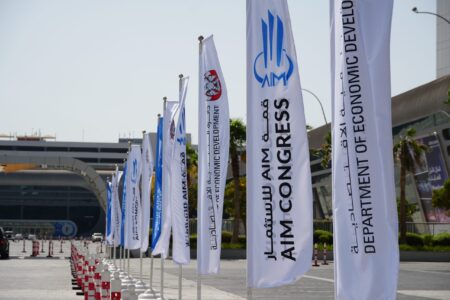- Critical minerals are vital for the green energy transition.
- The DRC is the world’s largest miner of critical minerals.
- DRC appeals to US to mine critical minerals and help stop rebel insurgency.
Critical minerals are defining the green energy transition and the DRC is the world’s largest producer. Critical minerals copper, lithium, nickel, cobalt and others including rare earth elements, such as lanthanum and yttrium are vital for the green energy transition.
These minerals and metals are essential for emerging technologies powering electric vehicle motors, wind turbines, and mobile phones among other modern digital devices and machines.
“The country Democratic Republic of Congo (DRC) is currently the world’s largest supplier of cobalt which has defence and aerospace applications as well as being essential for batteries in electric vehicles,” states Cobalt Institute’s factsheet titled “Powering the Green Economy.”
The report points out that most of the critical minerals mined in the DRC goes to China, and in fact, China owns most of the mining rights as well. According to the Congolese ministry of mines, the DRC has 61 active cobalt mining sites, of which 76 per cent are mined by Chinese companies.
Notably, the DRC is also rich in lithium, tantalum and uranium deposits, which among other things, have military uses a fact that makes them very valuable for all the big players, especially the US and China.
As pointed out, China is currently the largest miner of these minerals in the DRC but as rebel insurgency worsens, the DRC is looking to onboard US military might in exchange for mining rights of critical minerals.
However, at the moment, the US invests heavily in transport infrastructure while China invest in direct mining. “The U.S. is open to exploring critical minerals partnerships with Congo,” the U.S. State Department said in a statement to Reuters recently after a Congolese senator contacted U.S. officials to pitch a minerals-for-security deal.
“The United States is open to discussing partnerships in this sector that are aligned with the Trump Administration’s America First Agenda,” a State Department spokesperson said in reference to the mining of critical minerals in the DRC.
“The battery in an electric car and the magnets in wind turbines rely on critical minerals controlled by China. This gives the country a powerful role in the green transition, but it also creates challenges for the rest of the world,”
“China’s dominance gives it a strategic advantage but also exposes vulnerabilities for other nations,” says Gørild Heggelund, research professor at the Fridtjof Nansen Institute, Oslo, Norway.
The professor points out that while China itself controls over 60 percent of global rare earth production, it is, however, heavily dependent on imports for certain materials, such as cobalt and lithium for batteries.
“Almost all the cobalt used in China comes from the Democratic Republic of Congo. This makes their supply chains vulnerable,” the proffesor notes.
However, China has secured its position by dominating the processing phase, where raw materials are turned into usable components, she adds.
“China’s focus on processing has allowed it to maintain control without owning all the mines,” the professor explains.
China has become reliant on imports for parts of its supply because “its own domestic policies restrict mining and processing to conserve resources and reduce environmental pollution.”
Also Read: Power play: Can the green energy push ever outpace big oil?
Will Trump policies affect mining of critical minerals in DRC?
According to the State Department, the US is open to the possibility of mining critical minerals in the DRC. However, “Trump’s decision to pull out of the UN’s Paris agreement to control global warming has led to some pessimistic perspectives,” points out a report titled ‘Trump threatens to disrupt the world’s critical minerals supply – but there are reasons to be positive.’
The report is authored by Jorge Valverde and Carlo Pietrobelli from the United Nations University and says, while Trump’s decision to pull out of the Paris Agreement has wide spread negative effects it may not necessarily affect the mining of critical minerals after all.
“If Trump’s move towards oil and gas is interpreted by the markets as permanent, the price incentive for new mining projects for critical minerals will fall, along with long-term supply… This could potentially threaten the green energy transition,” the authors caution.
They further warn that; “If Trump’s move towards oil and gas is interpreted by the markets as permanent, the price incentive for new mining projects for critical minerals will fall, along with long-term supply. This could potentially threaten the green energy transition.”
Nonetheless, the experts say; “we believe that the new US administration policy is just a temporary shock without a significant change to the world’s energy transition trajectory.”
Should that be the case, it follows that; “Critical mineral markets will remain buoyant in the medium and long term.”
The report author’s also point out the fact that the US actually holds a competitive position in critical mineral markets.
“There’s a generalized perception that the US depends on importing critical minerals from other countries, such as China. This is true for a handful, but, overall, America is one of the most competitive countries in producing the minerals needed for green technology.”
“Therefore, it will be in the US’s interests to keep the lucrative critical mineral markets dynamic. Even if the US reduces its sustainability ambitions, slowing its demand for new clean technologies, it is likely to do it carefully, so as not to harm its own industries,” it concludes.
That been said, the report notes that when you look at the demand side, “the US only represents 10 per cent of world electric car sales, while China and Europe account for 66 per cent and 20 per cent of the market respectively.”
Also, “…for the world installed solar energy capacity, China represents over 43 per cent of the market, Europe 20 per cent, and the US only 10 per cent. On the supply side, the US produces around 15 per cent of the world’s electric cars, while China represents more than 50 per cent of the market,” the report admits.
The report underscores that; “So regardless of what Trump’s administration will decide on this matter, its influence on the market for clean technologies will be limited.”
“The energy policies of the new American administration will have ripple effects. But these are likely to be temporary and the market in critical minerals is unlikely to be affected long term. The global transition to clean energy seems safe, for now,” it concludes.
Read also: Tshisekedi urges US, EU to purchase minerals from DRC, not “smuggler” Rwanda










